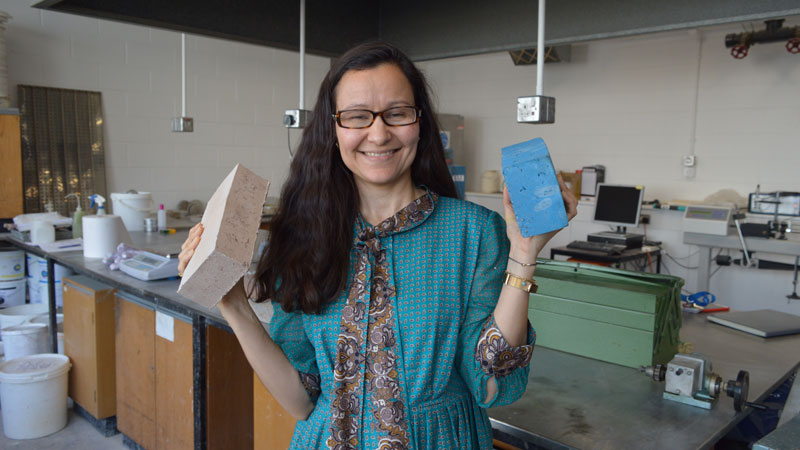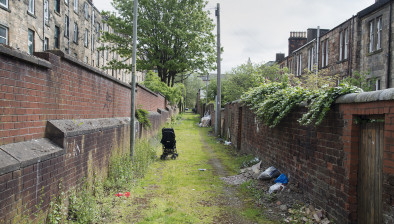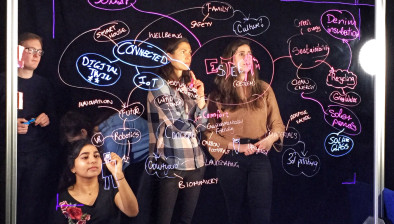Heriot-Watt spin-out company launches recycled brick on The One Show
A building brick made from 90% recycled construction and demolition waste has been launched by a spin-out company from Heriot-Watt University.

Professor Gabriela Medero
The K-Briq produces just a tenth of the CO2 emissions of a traditional fired brick, uses less than a tenth of the energy in its manufacture and can be made in any colour.
Incubated at Heriot-Watt University and now the first product from clean tech spin-out, Kenoteq Ltd, the brick’s story was featured on last night’s (January 7) episode of BBC’s The One Show.
Professor Gabriela Medero, who conceived the idea of the K-Briq more than 10 years ago, said: “We are looking forward to sharing the journey of the Kenoteq on tonight’s show and immersing viewers in the story of our research. We hope K-Briq will help support the sustainability ambitions of today’s construction industry.
“I have spent many years researching building materials and have been concerned that modern construction techniques exploit raw materials without considering that they are amongst the largest contributors to carbon emissions. The amount of waste they produce is not sustainable long-term.
“The K-Briq looks like a normal brick, weighs the same and behaves like a clay brick but offers better insulation properties. It is sustainable and not kiln-fired so it is far better for the environment and represents massive savings for the construction industry in terms of related taxes.”
Dr Sam Chapman, who works in close partnership with Professor Medero on Kenoteq, added: “Kenoteq has invested in machinery that can produce three million bricks per year. In the past year, we’ve produced thousands of bricks and put them through rigorous testing with the K-Briq now commercially available to construction clients. The Scottish Government has set very high targets for housebuilding with 50,000 new homes earmarked for construction in the next three years. We hope Kenoteq will be part of those homes.”
Up to 85% of bricks used in Scotland are currently being imported from England or Europe raising considerable questions about the long-term sustainability of the sector. The team now has an agreement with Hamilton’s Waste & Recycling to produce the K-Briq onsite at their recycling site, thereby reducing transport miles and carbon emissions.









